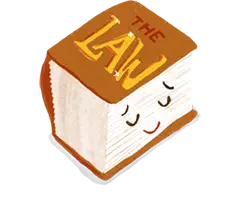Fair trading
This page contains different parts of laws about Fair trading, within the topic of Business.

Important laws about Fair trading
Weights and Measures Act 1987
New Zealand uses metric units like kilograms and metres for measuring things
4: Metric standards of weights and measures
Weights and Measures Act 1987
Rules about using metric measurements for buying, selling, and making agreements
8: Obligations to use metric system of weights and measures
Weights and Measures Act 1987
When you can use different ways of measuring things instead of the metric system
9: Exceptions to obligations to use metric system of weights and measures
Weights and Measures Act 1987
You must use metric units when selling things in New Zealand
10: Obligation to use metric system in advertising goods for sale
Weights and Measures Act 1987
When you don't need to use metric measurements in ads for selling things
11: Exceptions to obligation to use metric weights and measures in advertising goods for sale
Weights and Measures Act 1987
Breaking rules about weighing and measuring things can get you in trouble with the law
14: Offences
Weights and Measures Act 1987
It's against the law to give less than what someone paid for when selling things
16: Offence to supply short weight, measure, or number
Weights and Measures Act 1987
It's against the law to sell things with less inside than what the package says
16A: Offence to supply weight, measure, or number not in accordance with stated quantity
Weights and Measures Act 1987
It's wrong to lie about how much you're buying
17: Offence for purchaser to state incorrect weight, measure, or number
Weights and Measures Act 1987
Sellers must get a note about how much you're buying
18: Statement of true weight, etc, to be supplied to seller
Weights and Measures Act 1987
Weights and measures used for trading need a special approval stamp
21: Weights and measures to be stamped with mark of verification
Weights and Measures Act 1987
It's against the law to use or keep incorrect measuring tools for business
24: Offence to use or possess false or unjust weight or measure
More laws about Fair trading
About this project
What is this project?
How do we do this?
Why is the law written like it is?
Should we use AI for this?
Is this information the actual law?
You can talk to Community Law or Citizen's Advice Bureau about your rights.
Remember that AI can make mistakes, and just reading the law isn't enough to understand how it could be used in court.




